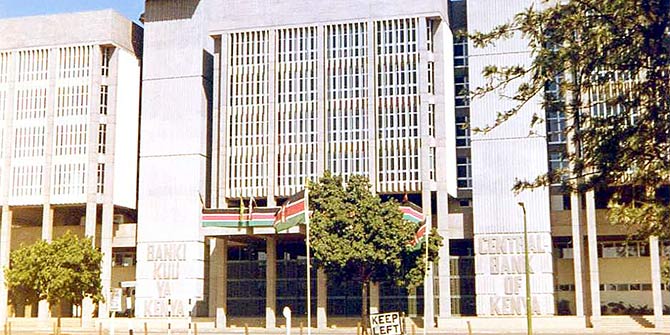Basile Ndjio says that the influx of young Chinese sex labour migrants is shifting perceptions of Sino-African relations in Cameroon.
In the city of Douala, Cameroon, Chinese goods now proliferate in local marketplaces, outmarketing locally manufactured products and, in the process, undermining the already fragile local industry. However, it is not only Chinese- sourced commodities that represent what some sections of the local population view as “economic malignancy” and “commercial imperialism”. Indeed, Chinese sex labour migration is also one the big threats faced by many native sex workers who now have to deal with the so-called “unfair competition” (concurrence déloyale) of Chinese migrant sex workers commonly characterised in the local urban popular parlance as “beautés de Shanghai” (Shanghai beauties)[1]. These young women from China are said to inundate the local sex market with cheap Asian bodies to the point of affecting negatively the activities of local sex workers now forced to offer more for less.
These recent years, many local media have echoed popular anxiety about the alleged “sexual invasion” of Cameroon by young Chinese women who are brought into the country through well-organised Chinese business and trade networks overseen by local Chinese merchants and traders. For example, in May 2004, the local tabloid Mutations (14 May 2004: 3) noted that China was now exporting to Cameroon what its editor referred to as a “charm migration” (migration de charme) which, according to him, had already resulted in the invasion of some luxurious hotels, night clubs and casinos of Douala by young Chinese women who were ready to satisfy the sexual needs of both local men and foreigners. During the same period, one Cameroonian online newspaper ironically observed that, it was through the dumping into Cameroon of illiterate and poor rural Chinese women that China was now making up for her growing involvement in many development projects in this “highly indebted poor country”. A man was even quoted as saying that in exchange for a bribe, corrupt Cameroonian officials had allowed China to turn Cameroon into what he referred to as a “Tropical Macau of sex and prostitution”. He even worried about the future of the local sex workers who would soon be driven out of the local sex market by young Chinese prostitutes[2].
Whether this concern is justified or not, whether it is only a hidden expression of the growing anti-Chinese feelings which now permeate a cross-section of the population in Cameroon, the truth is that young Chinese sex labour migrants have become the embodiment of a paradoxical perception of recent Sino-African cooperation by the local population. They are also the ambivalent figures of China’s recent modernity in Africa at large.
On the one hand, the cheap and affordable commoditised sex proposed by these young Chinese women enables relatively poor local men to partake in the global economy of body consumption. In addition, “Shanghai beauties” offer many underprivileged city dwellers, who have so far been excluded from the “consumption” of high-quality sex and first-grade bodies, the opportunity to enjoy sexual intercourse with much-sought-after Asian women at cheap prices. That is why many economically disadvantaged local men with a weak bargaining power prefer “Shanghai beauties” to native sex workers who tend to drive a hard bargain, when it comes to sexual transactions.
On the other hand, some disgruntled local sex workers whose customers have been decreasing with the involvement of young Chinese women in commercial sex increasingly make use of the idiom of occultism or sorcery to explain, not only the popularity of Shanghai beauties with local men, but also their setback in the prostitution business, a highly competitive activity. These discontented native sex workers often represent their successful Chinese counterparts as dangerous “putes sorcières” (bitch-witches) who allegedly make use of occult or magic means to seduce local men or to enhance their erotic drawing power[3].
The negative depiction of young Chinese migrant sex workers as sorcerers as well as the occultisation of their success in the local sex market, reflects radical changes in the China’s economic and commercial relations with Cameroon, marking a remarkable move from the former Sino-optimism to the current pervasive Sino-pessimism and friction between Chinese economic migrants and the native populations.
In conclusion, Shanghai beauties represent the growing disenchantment of many Africans with the officially celebrated Sino-African cooperation, which is increasingly perceived as an attempt by China to have control over Africa’s immense and unexploited resources under the guise of mutually-beneficial relations.
Dr Basile Ndjio is a lecturer at University of Douala in Cameroon.
[1] Cf. Basile Ndjio, ‘Shanghai beauties and African desires: Migration, trade and Chinese prostitution in Cameroon’ in The European Journal of Development Research, vol.21, 4, (2009), pp.606-21.
[2] cf. www.bonaberi.com, 23 January 2005.
[3] Basile Ndjio, ‘’Magic body’’ and ‘’cursed sex’’: Chinese sex workers as ‘’bitch-witches’’ in Cameroon, African Affairs, Oxford Journals, 113, 452, (2014), pp. 370-386







I am kind of appalled at this article, since it does not at all seek to correct the misinterpretation of Chinese-managed prostitutes in Cameroon. The author appears to be unsurprised at the cruel names meted out to the women. Yet he fails to mention that Chinese or Chinese-managed prostitutes are very likely to have been duped by those who brought them into the country, probably with the connivance of the authorities who will be among their favoured customers, therefore. Instead of this, he exacerbates the situation by repeating the slander that is around about Chinese prostitutes. Many will have been trafficked. In Nigeria they were summarily returned, and the law enforced – why is this not happening in Cameroun? See this piece, which explains how these young women (some of whom may have been trafficked from countries other than China) are trafficked into the sex industry in West Africa. Demand, not supply, is the motor. I hope that Dr Ndjio will not repeat the slurs being made against women who themselves may be victims. West African prostitutes also have a lot of venom directed against them in China.
http://www.africanseer.com/news/198167-chinese-prostitutes-invading-africa.html
Helen, I don’t think Mr Ndjio isn’t concerned about the condition of these women. His point is to show that there is a cultural response to the settlement of Chinese prostitutes in Cameroon, both by society and other prostitutes. There is no discussion of social justice here. It doesn’t entail that Mr Ndjio thinks those women are at fault. The only goal here is to show how Cameroonese society looks upon those women, and the fact that they concentrate what Cameroonese society sees as a problem with the import of Chinese commodities. On the contrary to what you say, I think this kind of anthropology would help you show transcultural exchanges and commodification have a great negative impact on people, as they integrate what seem for them to be their current local problem into a set of cosmological other problems. But that comes after anthropological analysis – what Mr Ndjio is doing here. He’s not insulting those women, but reporting how they are received in Douala.